Creating a seamless and luxurious home experience often starts with top-notch residential plumbing. Proper maintenance is crucial for preventing costly repairs and ensuring a smooth-running household. By identifying common plumbing issues early and keeping the right tools and supplies on hand, you can tackle problems before they escalate. Regular inspections of pipes and fixtures help maintain efficiency and avoid unexpected breakdowns. Understanding how to perform basic maintenance tasks empowers homeowners to take control of their plumbing needs. Choosing a skilled plumber and investing in high-quality materials further enhances the durability and elegance of your home’s plumbing system. Discover how these tips can elevate your home’s functionality and comfort.
Let’s investigate this topic extensively with lealhotel.com
1. Why Proper Maintenance is Crucial
Taking care of your home’s plumbing is crucial for its smooth operation and long life. Regular maintenance prevents small problems from escalating into big, expensive repairs. For instance, neglecting a small leak can result in water damage, mold growth, and higher utility bills. Routine maintenance, including checking pipes, faucets, and fixtures, ensures everything is in good working order, minimizing the chance of sudden breakdowns that can disrupt your daily routine.
Moreover, a well-maintained plumbing system enhances overall home safety. Problems like rusted pipes or clogged drains can create significant risks, such as water contamination and flooding. Regular inspections and prompt attention to potential issues effectively protect your home from these hazards.
Regular maintenance ensures optimal plumbing performance, boosting water pressure and efficiency. This translates to a more luxurious home experience with consistent, reliable water flow. Investing in plumbing maintenance not only saves money in the long run but also creates a comfortable and secure home environment for you and your family.
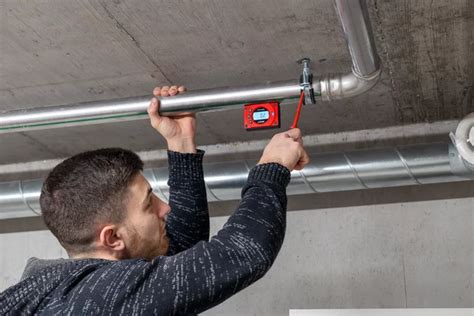
2. How to Identify Common Plumbing Issues Early
Early detection of common plumbing problems can save you from expensive repairs and disruptions to your home. Pay close attention to warning signs, such as unusual noises coming from your pipes, like clanking or banging, which could indicate loose or damaged parts. Changes in water pressure, particularly a significant drop, are another red flag, potentially signaling a leak or obstruction.
Keep an eye out for signs of leaks, including water stains on walls, ceilings, or floors. Mold growth or dampness around fixtures can also signal hidden leaks. Moreover, watch your water bills for unexpected spikes, as this might indicate an unnoticed leak.
Regularly checking your water heater for signs of rust, corrosion, or unusual noises can help prevent potential breakdowns. It’s also important to ensure your drains are functioning properly by looking out for slow drainage or foul odors, which could indicate clogs or sewer line problems.
Regular plumbing checks and a proactive approach can help you identify problems early, address them quickly, and keep your plumbing system running smoothly. Consistent inspections and heightened awareness are crucial for ensuring the efficiency and comfort of your home’s plumbing.
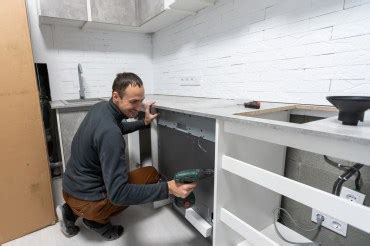
3. What Tools and Supplies to Keep on Hand
Having the right tools and supplies readily available is key to successful residential plumbing maintenance. Begin with a basic toolkit featuring a pipe wrench, adjustable wrench, and pliers for securely tightening and loosening fittings. A plunger and a plumber’s snake are essential for effectively clearing clogs in drains and toilets.
To handle routine inspections and minor repairs, keep the following items readily available: a flashlight, a tape measure, and a pipe cutter. For addressing leaks and ensuring tight connections, pipe sealant and plumber’s tape are essential. Additionally, include a pipe repair clamp and a small bucket to manage spills and collect drips during repairs.
Keeping a stock of replacement parts, like washers, gaskets, and small fittings, can be a lifesaver when dealing with common plumbing problems. Having these tools and supplies on hand will allow you to address minor plumbing issues quickly and easily, preventing delays and ensuring the smooth operation of your home’s plumbing system.
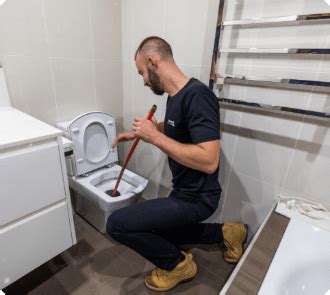
4. Why You Should Regularly Inspect Pipes and Fixtures
Regularly inspecting your pipes and fixtures is crucial for maintaining a healthy plumbing system and avoiding major problems. Pipes naturally deteriorate over time, and early identification of issues like rust, corrosion, or leaks can prevent larger, more costly repairs. By conducting regular inspections, you can address minor problems before they develop into expensive repairs or extensive water damage.
Fixtures, including faucets and showerheads, also require periodic checks. Look for signs of leaks, drips, or reduced water pressure, which may indicate a need for repairs or replacements. Regular inspection helps ensure that fixtures are functioning correctly and efficiently, contributing to overall water conservation and reducing utility costs.
Additionally, routine inspections help you identify potential issues in hard-to-reach areas before they become major problems. This proactive approach not only extends the lifespan of your plumbing components but also enhances the comfort and safety of your home by ensuring that all systems are operating smoothly and effectively.
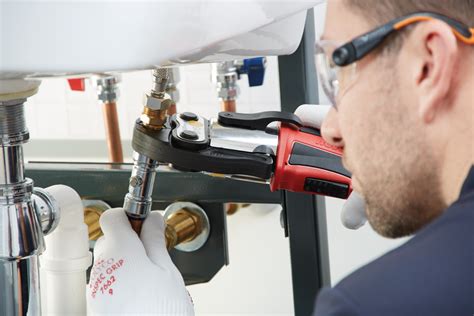
5. How to Perform Basic Maintenance Tasks
Performing basic maintenance tasks is key to keeping your plumbing system in top shape. Start with regularly cleaning your drains to prevent clogs. Use a mixture of baking soda and vinegar followed by hot water to clear out minor blockages and freshen up the pipes. For kitchen sinks, avoid putting grease and large food particles down the drain, as they can cause buildup.
To maintain optimal water flow, it’s important to regularly check and clean faucet aerators and showerheads. Mineral deposits and debris can accumulate, restricting water flow. To clean them, simply remove the aerator or showerhead, soak it in a vinegar solution, and scrub away any buildup.
Give your water heater an annual checkup. This involves flushing the tank to remove sediment buildup and inspecting the anode rod for signs of corrosion. Make sure the temperature is set to approximately 120°F to avoid scalding and conserve energy.
Finally, check and tighten any loose pipe fittings and look for signs of leaks. Addressing these minor issues promptly helps maintain efficient operation and prevents more serious problems from developing.
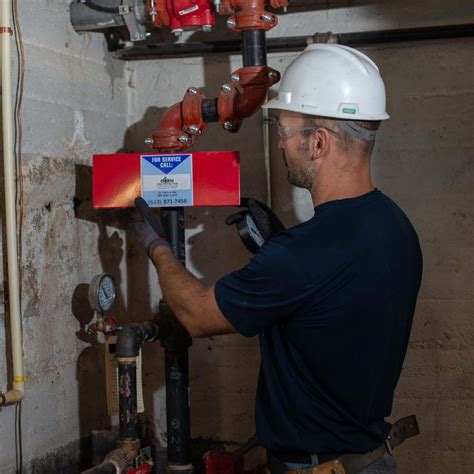
6. What to Look for When Choosing a Plumber
Selecting a reliable plumber requires careful consideration. It’s crucial to verify their credentials and licensing to ensure they meet local regulations and industry standards. A licensed plumber signifies expertise and adherence to best practices, providing peace of mind when choosing a professional.
To find a reliable plumber, prioritize experience and reputation. Research online reviews and request references from past clients. A well-established plumber with a history of quality work is more likely to provide excellent service. Furthermore, consider their area of expertise; make sure they have experience addressing the specific plumbing problems you are facing.
Assess a plumber’s responsiveness and communication abilities. A reliable plumber will provide clear estimates, thoroughly explain the project’s scope, and promptly address any questions or concerns. Look for plumbers who offer warranties or guarantees on their work, demonstrating their confidence in the quality of their services.
Lastly, consider pricing, but be cautious of bids that seem too good to be true. These might suggest inferior work or unexpected additional charges. Opting for a plumber with positive reviews, extensive experience, and clear pricing practices will contribute to dependable and successful plumbing services for your home.
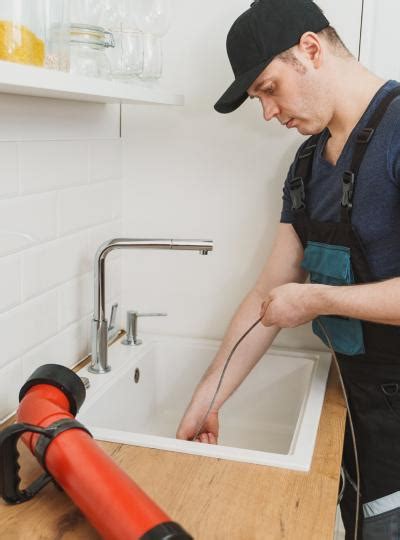
7. Why High-Quality Materials Matter
Investing in high-quality materials for your plumbing is essential for long-term durability and efficiency. Premium materials, like stainless steel pipes and top-tier fittings, provide superior resistance to corrosion, leaks, and damage compared to less expensive options. This translates to fewer repairs and replacements down the road, resulting in significant cost savings and a plumbing system you can depend on for years to come.
Optimizing performance relies heavily on the quality of materials used. Take, for example, premium pipes and fixtures, which deliver superior water flow and pressure, ultimately contributing to a more comfortable home environment. Engineered to withstand high temperatures and pressures, these components minimize the likelihood of unforeseen failures.
Furthermore, prioritizing premium materials enhances the safety of your plumbing system. Substandard materials can potentially introduce contaminants into your water supply or pose other health hazards. Conversely, superior materials guarantee a safe, efficient, and code-compliant plumbing system.
Investing in high-quality materials for your plumbing system is a wise decision that significantly enhances its lifespan and functionality. This ultimately translates into a more seamless and luxurious living experience in your home.
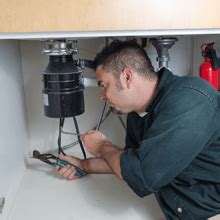
8. How to Enhance the Luxury of Your Home through Plumbing
Upgrading your home’s luxury through plumbing means incorporating high-end fixtures and features that enhance both practicality and beauty. Begin by installing stylish, contemporary faucets and showerheads. These not only exude elegance but also provide advanced features like customizable spray patterns and precise temperature control.
Consider upgrading to a high-efficiency water heater or a tankless system for a continuous supply of hot water and improved energy efficiency. High-quality water filtration systems can also enhance your water’s taste and quality, contributing to a more luxurious living experience.
Incorporate features such as heated floors and towel racks in bathrooms for added comfort. A high-end spa shower with multiple jets and a rainfall showerhead can transform your bathroom into a personal retreat.
Investing in custom plumbing solutions like built-in water coolers or wine storage units can further add to the luxury and convenience of your home. By choosing premium fixtures and advanced technologies, you create a more comfortable, stylish, and enjoyable living environment.
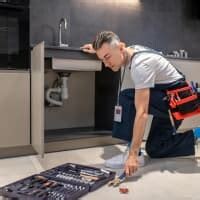
Maintaining and upgrading your residential plumbing is key to a seamless and luxurious home experience. By performing regular inspections, using quality materials, and investing in advanced fixtures, you enhance both functionality and comfort. Proactive maintenance and thoughtful enhancements ensure a reliable, efficient plumbing system, contributing to a more enjoyable and elegant living environment.
lealhotel.com